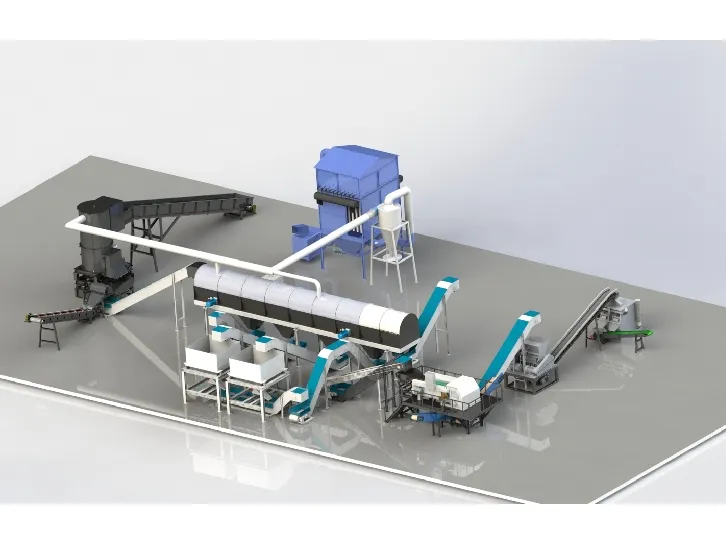
10 月 . 06, 2024 16:02 Back to list
The Importance of Aluminum Can Recycling Plant
Aluminum can recycling plays a pivotal role in conserving natural resources, reducing energy consumption, and mitigating environmental impact. An aluminum can recycling plant serves as a crucial facility in this process, transforming waste aluminum into reusable materials. With the rising global demand for aluminum products, these plants become increasingly significant in promoting sustainability and fostering a circular economy.
Aluminum is one of the most widely used metals in the world, particularly in packaging, which accounts for a substantial portion of its consumption. The lightweight and corrosion-resistant properties of aluminum make it ideal for manufacturing cans, which are extensively used for beverages. However, the extraction and processing of raw aluminum are energy-intensive and have substantial environmental ramifications. Therefore, recycling aluminum is not just practical; it is essential.
An aluminum can recycling plant operates through a series of well-coordinated processes. Collection is the first step, where used aluminum cans are gathered from various sources, including residential recycling bins, commercial establishments, and industrial venues. Following collection, the cans are transported to the recycling facility where they undergo sorting. During this stage, contaminants such as plastics, paper, and other metals are removed to ensure that only aluminum is processed.
Once sorted, the aluminum cans are crushed and shredded into small pieces, often referred to as fluff. This fluff is then melted down in large furnaces at high temperatures. Importantly, the melting process does not require raw bauxite (the primary aluminum ore), resulting in substantial energy savings. In fact, recycling aluminum saves up to 95% of the energy required to produce primary aluminum from ore. This translates to a decrease in greenhouse gas emissions and less strain on the planet’s natural resources.

The molten aluminum is then cast into large blocks known as ingots, which are subsequently cooled and sent to manufacturers who will produce new aluminum products. This closed-loop system ensures that aluminum remains in circulation, thus decreasing the need for mining and refining new aluminum. Moreover, individual consumers play a critical role in this cycle. By recycling their aluminum cans, they contribute directly to the conservation of energy and resources, making a positive impact on the environment.
Investment in aluminum can recycling plants is not only beneficial for the environment but also generates economic advantages. These facilities create jobs in the recycling and manufacturing sectors, both in terms of direct employment within the plant and jobs in related industries. They also support local economies by promoting sustainable practices that can lead to cost savings for municipalities through reduced landfill use.
Moreover, as consumers become more aware of environmental issues, the demand for recycled aluminum continues to rise. This creates an opportunity for recycling plants to innovate and improve their processes, adopting new technologies that increase efficiency and reduce waste.
In conclusion, aluminum can recycling plants are integral to fostering a sustainable future. They not only mitigate the ecological impacts of aluminum production but also support economic growth and community development. By focusing on recycling and reprocessing, we can fulfill our growing demand for aluminum while protecting the environment for future generations. Supporting these facilities and participating in recycling efforts is a collective responsibility that everyone can embrace in their daily lives.
Latest news
Unveiling the Power of Eddy Current Separator
NewsSep.25,2024
Transform Your Home Recyclin:home metal shredder
NewsSep.25,2024
The Future of Waste Management with Recycling Line Picker
NewsSep.25,2024
The Benefits of a Metal Recycling Plant
NewsSep.25,2024
Revolutionize Material Separation with Onwang Technology
NewsSep.25,2024
Innovative Waste Management: Unveiling the MSW Sorting Plant
NewsSep.25,2024